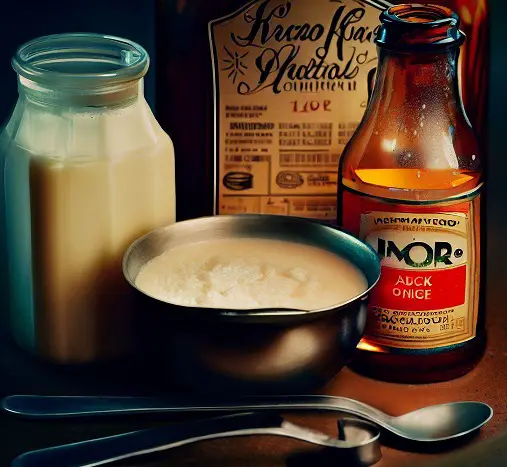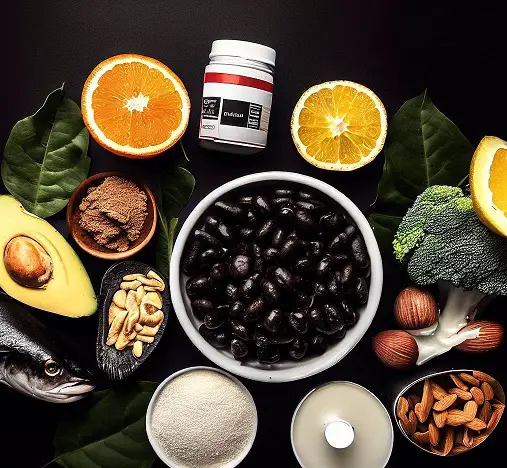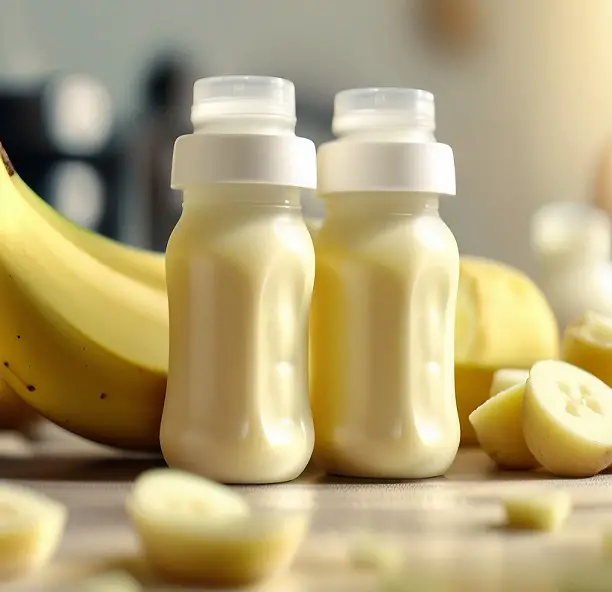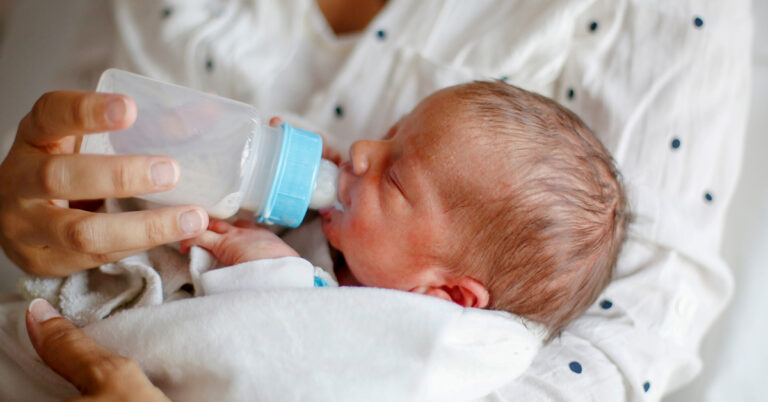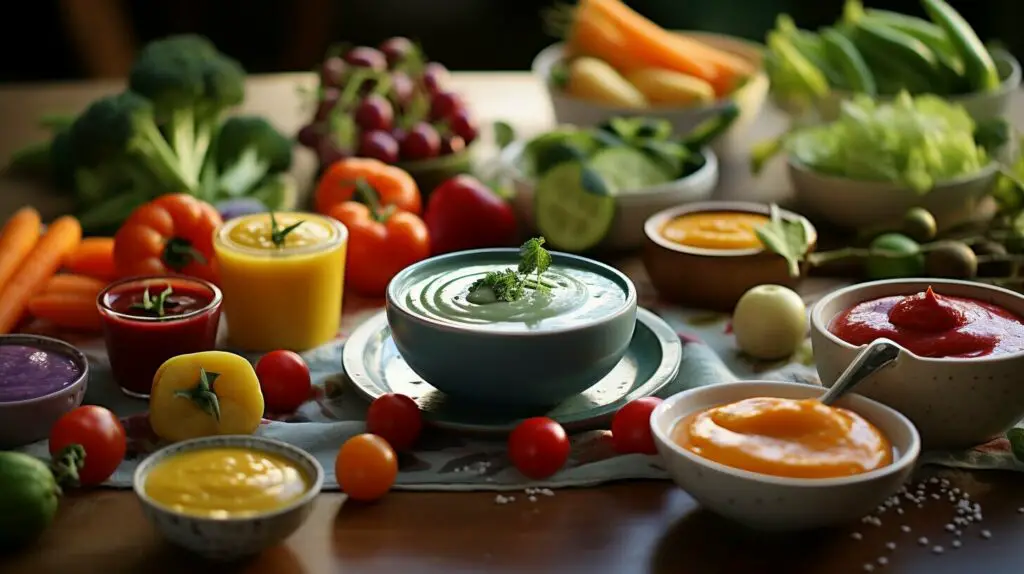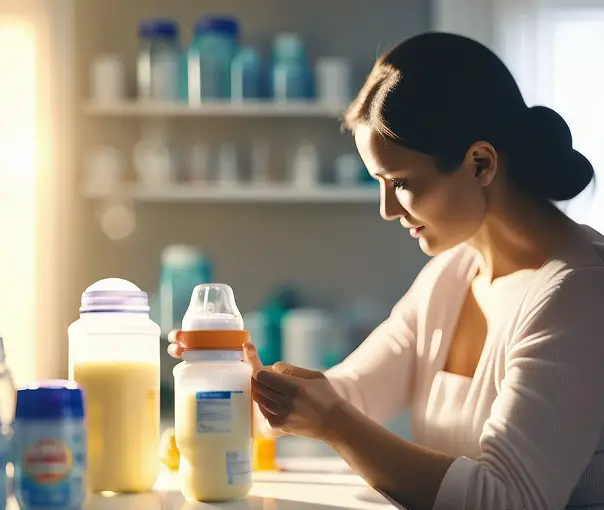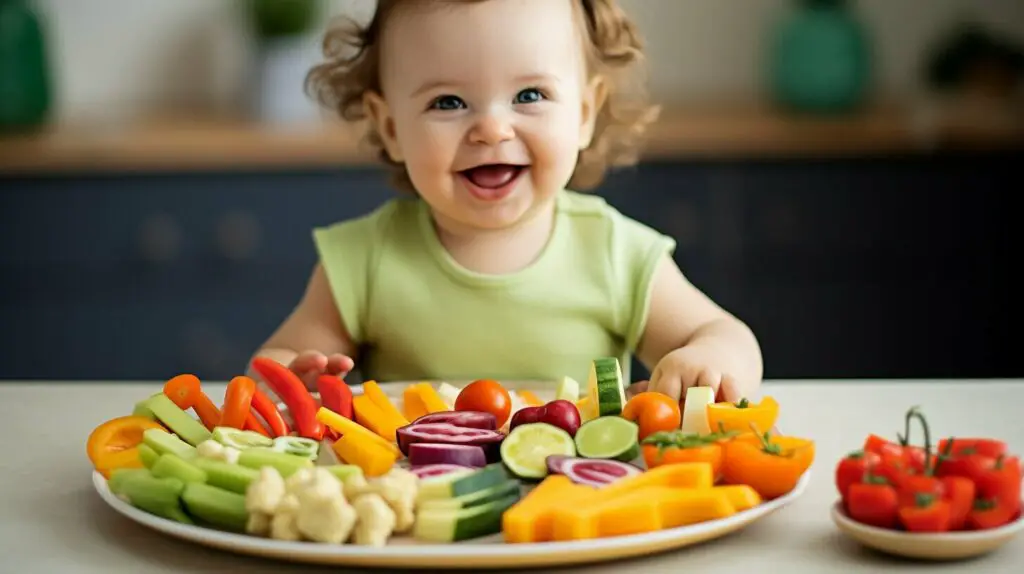As a parent or caregiver, it’s important to ensure that your little one is receiving all the nutrients they need to grow and thrive. However, purchasing baby formula can be costly, especially if you’re living on a tight budget. That’s where food stamps, also known as SNAP benefits, can be a helpful resource. But can you buy baby formula with food stamps? In this article, we’ll explore this question and provide you with valuable information to help you navigate the process.
Key Takeaways:
- Food stamps can be used to purchase baby formula if certain eligibility requirements are met.
- There are different types of baby formula that can be purchased with food stamps, including powdered formula, ready-to-feed formula, and specialty formulas.
- It’s important to know how to properly use food stamps to purchase baby formula, as well as how to store it to ensure its safety and quality.
- If you cannot afford baby formula, there are government programs and resources available to help you access it for free or at a low cost.
Eligibility for Purchasing Baby Formula with Food Stamps

If you’re wondering whether you can use food stamps to purchase baby formula, the answer is yes, but there are certain eligibility criteria you must meet.
To qualify for food stamp benefits, also known as the Supplemental Nutrition Assistance Program (SNAP), your household income must fall within a certain range. The income guidelines are based on the federal poverty level and vary depending on the size of your household.
| Household Size | Maximum Monthly Gross Income |
|---|---|
| 1 | $1,383 |
| 2 | $1,868 |
| 3 | $2,353 |
| 4 | $2,839 |
| 5 | $3,324 |
| 6 | $3,809 |
| 7 | $4,295 |
| 8 | $4,780 |
| Each additional person | + $486 |
In addition to meeting income requirements, you must also be a U.S. citizen or a qualified noncitizen and provide certain personal information when applying for SNAP benefits.
Exceptions for Women, Infants, and Children (WIC) Participants
If you participate in the Special Supplemental Nutrition Program for Women, Infants, and Children (WIC), you may be automatically eligible for SNAP benefits. Check with your WIC agency or local SNAP office for more information.
Types of Baby Formula That Can Be Purchased with Food Stamps
If you’re eligible to use food stamps to purchase baby formula, you might be wondering what types of formula are available to you. Here are the different options:
| Formula Type | Description |
|---|---|
| Powdered Formula | This type of formula needs to be mixed with water before use. It is the most common type of formula and is generally the most affordable. |
| Ready-to-Feed Formula | As the name implies, this type of formula is ready to use straight from the container. It is the most convenient type of formula but is also the most expensive. |
| Concentrated Formula | Concentrated formula needs to be mixed with water before use, but it is less bulky than powdered formula. It is a good option if you have limited storage space. |
| Specialty Formula | If your baby has specific dietary needs or allergies, specialty formula may be necessary. These formulas can be more expensive and may require a prescription from a healthcare provider. |
It’s important to speak with your baby’s healthcare provider about which type of formula is best for their individual needs.
How to Use Food Stamps to Purchase Baby Formula
Using food stamps to purchase baby formula is a simple process that can help ensure your little one is well-nourished. Follow these steps to use your food stamps to purchase baby formula:
- Locate a store that accepts food stamps: Before you head to the store, ensure that it accepts food stamps. Many major retailers such as Walmart, Target, and Kroger accept food stamps.
- Shop for the baby formula: Once you’re at the store, head to the baby formula section and choose the type that you need. Remember that specialty formulas may require a doctor’s prescription.
- Use your food stamp card: When you’re ready to check out, provide your food stamp card to the cashier. The card will deduct the amount of the formula from your food stamp balance.
- Pay any remaining balance: If your food stamp balance doesn’t cover the full cost of the formula, you’ll need to pay the remaining balance with another form of payment, such as cash or a credit card.
- Keep your receipt: Be sure to keep your receipt in case you need to return the formula or there are any issues with the purchase.
Remember, you cannot use food stamps to purchase baby formula online, so you’ll need to visit a physical store to make your purchase. Additionally, be aware that you may not use food stamps to purchase formula for a friend or family member, as the cardholder must be present at the time of purchase.
What to Do If You Cannot Afford Baby Formula
If you are struggling to afford baby formula on your own, there are resources available to help you provide for your child’s needs. Here are some alternative options to consider:
- Apply for assistance programs: Government programs like Women, Infants, and Children (WIC) and Supplemental Nutrition Assistance Program (SNAP) may be able to provide you with financial support to purchase baby formula.
- Check with your pediatrician: Your child’s pediatrician may have samples of baby formula or be able to provide you with information on local programs that offer free or low-cost formula.
- Reach out to community organizations: Many community organizations, such as food banks or churches, may have resources available to help you obtain baby formula.
- Consider online resources: There are online platforms that offer free or low-cost baby formula to families in need.
Remember, no matter what your financial situation may be, there are resources available to help you provide for your child. Don’t hesitate to reach out for support if you need it.
Government Programs That Provide Assistance with Purchasing Baby Formula
If you’re struggling to afford baby formula, there are government programs that can provide assistance. These programs are designed to help low-income families with the costs of feeding their infants.
Special Supplemental Nutrition Program for Women, Infants, and Children (WIC)
WIC is a federal assistance program that provides nutrition education, healthy food, and other support to low-income pregnant women, new mothers, and young children. If you are eligible for WIC, you can receive monthly vouchers to purchase specific types of baby formula, along with other nutritious foods such as milk, eggs, and fruits and vegetables.
To be eligible for WIC, you must have a household income below a certain level, be pregnant or have a child under the age of five, and be a resident of the state where you are applying for benefits. You can find out more about WIC eligibility requirements and how to apply by contacting your local WIC office.
Supplemental Nutrition Assistance Program (SNAP)
SNAP, also known as food stamps, is a program that helps low-income households purchase food. If you receive SNAP benefits, you can use them to buy baby formula at grocery stores and other authorized retailers.
To be eligible for SNAP, you must have a household income below a certain level. Eligibility is also based on other factors such as your household size and expenses. You can find out more about SNAP eligibility requirements and how to apply by contacting your state’s SNAP office.
It’s important to note that WIC and SNAP have different eligibility requirements and benefit levels. Depending on your circumstances, you may be eligible for one or both of these programs.
Resources for Finding Free or Low-Cost Baby Formula
When it comes to providing your baby with formula, the costs can add up quickly. If you are struggling financially and cannot afford to purchase baby formula, there are resources available to help you get the supplies you need.
Here are some options to consider:
- WIC: The Special Supplemental Nutrition Program for Women, Infants, and Children (WIC) provides financial assistance for low-income families to purchase nutritious food, including baby formula. Contact your local WIC office to see if you qualify for assistance.
- Food banks: Many food banks and food pantries offer baby formula as part of their assistance programs. Check with your local food bank to see if they have formula available.
- Community organizations: Some community organizations, such as churches or non-profits, may offer free or low-cost baby formula for families in need. Contact local organizations in your area to see if they can provide assistance.
- Online platforms: There are various online platforms that connect individuals with free or low-cost baby formula, such as Freecycle or Craigslist. Always exercise caution when using these platforms and only accept formula from trusted sources.
If you are struggling to find resources or assistance in your area, reach out to your healthcare provider or social worker for additional support and guidance. Remember, there are options available to help you provide for your baby and ensure they receive the nutrition they need.
Tips for Stretching Your Food Stamp Dollars
If you’re relying on food stamps to purchase baby formula, every dollar counts. Here are some tips for stretching your food stamp dollars:
- Make a budget: Knowing how much you can afford to spend on groceries each month can help you make informed purchasing decisions.
- Meal plan: Plan your meals for the week ahead of time, so you know exactly what ingredients you need to buy and can avoid overspending on impulse purchases.
- Buy in bulk: Purchasing larger quantities of non-perishable items like formula, rice, and beans can help you save money in the long run.
- Compare prices: Before you buy, compare prices at different stores to ensure you’re getting the best deal.
- Use coupons: Look for coupons in the newspaper or online, or sign up for a store’s loyalty program to receive discounts on purchases.
- Avoid pre-packaged items: Pre-packaged foods are often more expensive than fresh foods. Consider purchasing fresh fruits and vegetables and bulk grains instead.
By following these tips, you can make your food stamp dollars go further and ensure that your baby has access to the nutritious formula they need.
How to Store Baby Formula Properly
Proper storage of baby formula is crucial to ensure that it remains safe and of high quality for your little one. Here are some guidelines to follow:
Temperature control: Store unopened cans of formula in a cool, dry place. Once opened, store the can in the refrigerator and use the formula within 24 hours.
Expiration dates: Always check the expiration date on the can before using the formula. Do not use formula past its expiration date.
Proper handling: Always wash your hands before handling formula, and use a clean and sterile bottle and nipple when preparing the formula. Do not mix old and new formula together, as this can cause contamination.
Formula Preparation Guidelines
When preparing formula, follow these guidelines:
| Step | Instructions |
|---|---|
| Step 1 | Wash your hands with soap and water. |
| Step 2 | Prepare a clean bottle and teat/nipple, wash with hot soapy water and rinse well, then sterilize. |
| Step 3 | Boil fresh water and leave to cool down (no longer than 30 minutes). |
| Step 4 | Add the correct amount of formula to the water according to the instructions on the can. |
| Step 5 | Shake the bottle well to mix the formula and water. |
| Step 6 | Test the temperature of the formula on the back of your hand before feeding your baby. It should feel warm or at room temperature. |
By following these guidelines for proper storage and formula preparation, you can help ensure that your baby’s formula remains safe and of the highest quality.
Common Baby Formula Safety Concerns
When it comes to feeding your baby, safety is always the top priority. While baby formula is a convenient and popular option for many parents, there are some safety concerns to keep in mind when using it.
Bacterial Contamination
Baby formula can be contaminated with harmful bacteria such as Cronobacter Sakazakii, which can cause serious illness in infants. To reduce the risk of contamination, it is important to always wash your hands before preparing or handling formula, use sterile equipment, and follow the manufacturer’s instructions for preparation and storage. Additionally, it is recommended to discard any formula that has been sitting out for more than two hours.
Proper Preparation Techniques
Proper preparation of baby formula is essential for your baby’s health and safety. Always use clean water and measuring utensils when preparing formula, and follow the recommended mixing instructions carefully. It is also important to use formula within the expiration date and discard any leftover formula that has not been used within 24 hours.
Potential Allergens
Some babies may be allergic or intolerant to certain ingredients in baby formula, such as cow’s milk or soy. If your baby has symptoms such as colic, rash, or diarrhea after feeding, talk to your pediatrician to determine if a formula change is necessary.
The Bottom Line
While there are some safety concerns related to baby formula, following proper preparation and storage techniques and being mindful of potential allergens can help ensure your baby stays safe and healthy. If you have any concerns or questions about feeding your baby formula, talk to your pediatrician for guidance.
Conclusion
In conclusion, purchasing baby formula with food stamps is possible for eligible individuals. It is important to understand the eligibility criteria and types of formula that can be purchased with food stamps. If you cannot afford baby formula, there are alternative options available, such as government assistance programs or accessing free or low-cost resources.
Additionally, it is important to properly store baby formula and be aware of common safety concerns. By following tips for stretching your food stamp dollars and making smart purchasing decisions, you can ensure that you are able to provide your child with the necessary nutrition they need.
Remember to always prioritize the well-being of your child and seek assistance if needed.
You may also like to read:
FAQ
Q: Can You Buy Baby Formula with Food Stamps?
A: Yes, baby formula can be purchased with food stamps.
Q: What are the eligibility criteria for purchasing baby formula with food stamps?
A: Eligibility for using food stamps to purchase baby formula depends on factors such as income and household size. To determine eligibility, you will need to meet the income requirements set by your state’s Supplemental Nutrition Assistance Program (SNAP) and fall within the specified household size guidelines.
Q: What types of baby formula can be purchased with food stamps?
A: Various types of baby formula, including powdered formula, ready-to-feed formula, and specialty formulas, can be purchased with food stamps.
Q: How do I use food stamps to purchase baby formula?
A: To use food stamps to purchase baby formula, you will need to visit a participating store that accepts food stamps as a form of payment. At the checkout, present your food stamp card to the cashier, and the eligible items, such as baby formula, will be deducted from your balance.
Q: What should I do if I cannot afford baby formula?
A: If you cannot afford baby formula, there are alternative options available. You can seek assistance from government programs like the Special Supplemental Nutrition Program for Women, Infants, and Children (WIC) or local SNAP programs. Additionally, there are resources where you can find free or low-cost baby formula, such as local food banks, community organizations, and online platforms.
Q: Are there government programs that provide assistance with purchasing baby formula?
A: Yes, there are government programs like the Special Supplemental Nutrition Program for Women, Infants, and Children (WIC) or local SNAP programs that offer assistance to individuals in purchasing baby formula.
Q: Where can I find free or low-cost baby formula?
A: There are various resources available for finding free or low-cost baby formula. You can check local food banks, community organizations, and online platforms for assistance in obtaining baby formula at no or reduced cost.
Q: What are some tips for stretching food stamp dollars?
A: To stretch your food stamp dollars, consider budgeting, meal planning, and making smart purchasing decisions. This can involve buying in bulk, opting for cheaper alternatives, and maximizing the use of ingredients.
Q: How should I store baby formula properly?
A: Baby formula should be stored properly to ensure its safety and quality. Store it in a cool, dry place away from direct sunlight, and follow the manufacturer’s instructions for temperature control. Check the expiration dates and discard any expired or spoiled formula. Proper handling, such as washing hands before preparation, is also crucial.
Q: What are some common safety concerns related to baby formula?
A: Common safety concerns regarding baby formula include bacterial contamination, proper preparation techniques, and potential allergens. It’s important to follow the instructions provided by the formula manufacturer and ensure proper hygiene during preparation.
Q: Can I purchase baby formula with food stamps?
A: Yes, baby formula can be purchased with food stamps.

